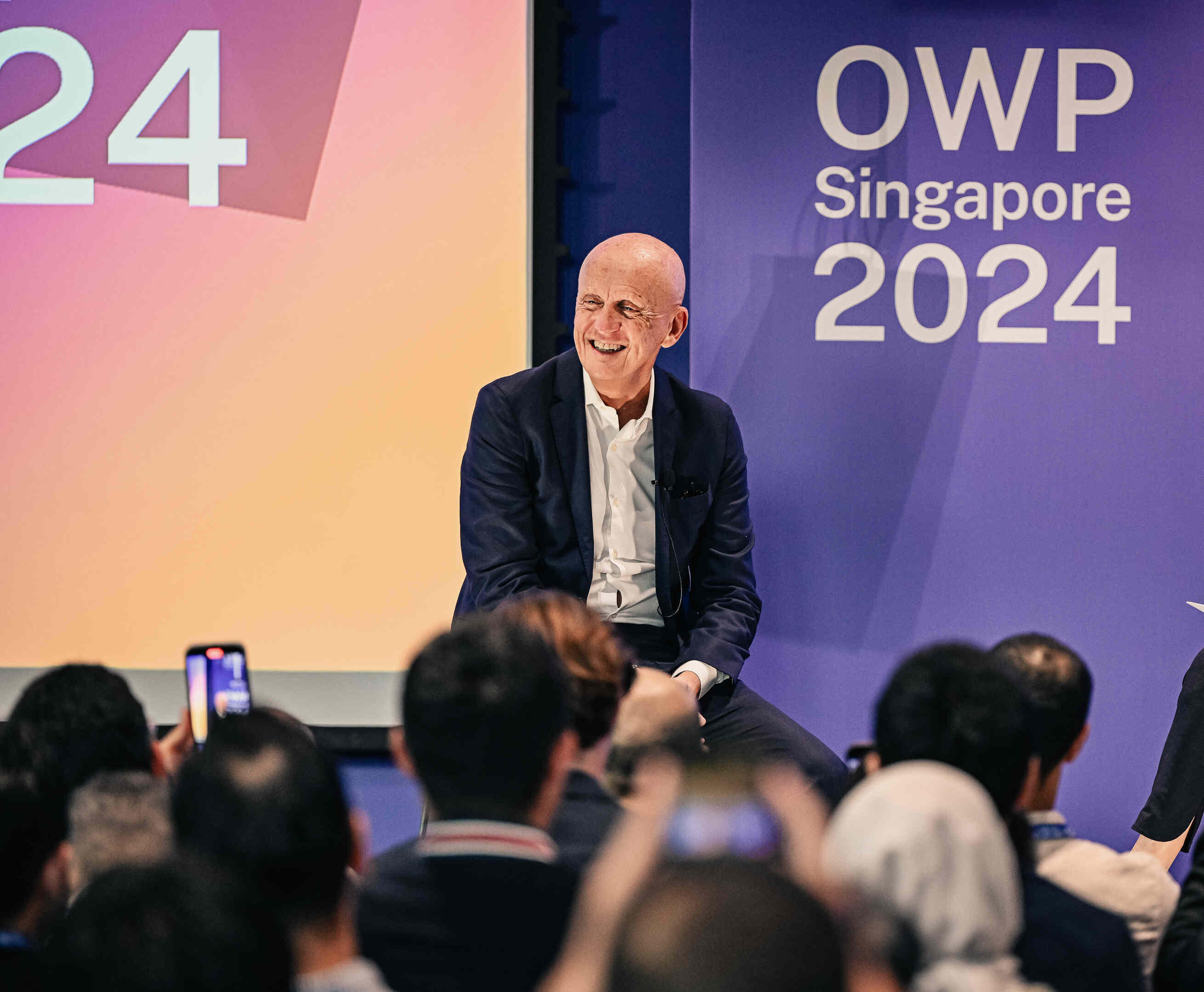Friend or foe? How philanthropy can make or break a reputation
A good reputation is an asset for every family business and a source of competitive advantage. Equally, a less-than-stellar reputation can quickly become harmful.
Reputation is based on the perception of others; it is something no one has complete control over. Building and maintaining a positive reputation is, therefore, a complex challenge, including for long-lasting family businesses.
Reputational damage can affect anyone, and it usually happens when least expected. One recent example of a family business falling into trouble is Volkswagen. Beyond the financial cost of $33.3 billion that the company had to pay out for the emissions scandal in fines, penalties, financial settlements and buyback costs, Volkswagen suffered major damage to its brand and reputation.
Reputation management involves building, protecting and renewing a reputation in order to manage the gap between how a brand would like to be perceived and how it is actually perceived. For many family businesses, philanthropic activity can play a key role in reputation management. But it is far from an “open goal”. While there are times when philanthropic activity improves reputation, there are also occasions when it can backfire. Families must be aware of this risk and be ready to manage and mitigate it.
As President Theodore Roosevelt once said: “No amount of charity in spending such fortunes can compensate in any way for the misconduct in acquiring them.” Are the (potentially) ulterior motives of donors more important than the philanthropy they provide?
Through conversations with philanthropic family business leaders, we have discovered that there are two extremes: some families are very open to talking with anyone who is willing to listen about their philanthropy, while others are very private about it, even with their closest friends and family.
Rebuilding a national treasure
Philanthropy hit the headlines for all the wrong reasons after the 2019 Notre Dame fire. Just one day after the blaze, a number of wealthy and well-known French citizens promised to donate close to the $1 billion needed to help restore the cathedral. They included François Pinault, chairman and CEO of Kering — the luxury group behind Gucci, Balenciaga and other world-renowned brands — and Bernard Arnault, chairman and CEO of LVMH Moët Hennessy, the world’s leading luxury products group.
Public opinion turned surprisingly critical. Many argued that wealthy families’ motives for giving were not purely altruistic but came from a desire to dodge taxes. It is true that active donors (including wealthy families) engage in philanthropy for a variety of reasons. But, while reputation and an array of business benefits may rank among them, altruism, values and awareness of need also feature strongly.
At his company’s shareholder meeting shortly afterwards, Bernard Arnault said: “I am dismayed to see that, in France, you are criticized even when you do something for the public’s interest.”
Even though, due to COVID-19, donations have skyrocketed this year, the latest CAF World Giving Index report shows that there are a great number of countries around the world in which giving behaviors such as helping a stranger, volunteering, or donating money have been sharply declining over the past 10 years.
This downward trend could partly be attributed to a less favorable public perception of philanthropy in general, and of elite philanthropy, in particular.
The Pinault and Arnault families learned this lesson the hard way. As the months went by, they received further bad press for their reluctance to follow through on their generous promises. The public backlash focused on the fact that most funds to restore the cathedral actually came from small donors; mainly French and American citizens who donated to church charities such as the Friends of Notre-Dame de Paris, and others.
Late last year, François Pinault was reported to have finally signed official documents setting aside 100 million euros ($109 million) toward rebuilding Notre Dame. Bernard Arnault followed suit by finalizing his donation agreement with the Notre Dame Foundation a week later.
The buck stops here
Philanthropy can either help or harm a family’s reputation. If executed well, it can contribute to a family business’ lasting success. However, when handled badly, it can be the cause of backlash and trigger unintended negative consequences.
Despite philanthropy’s potential pitfalls, there are a number of proactive steps that can be taken to mitigate the risks.
- Be authentic and communicate openly and clearly
- Focus activities around consistent values and a shared, defined purpose
- Align business practices with philanthropic aims in a cohesive way
When weighing up the reputation risk of any philanthropic activity, families should address the following questions:
- Should a possible backlash prevent you from giving to those in need?
- Would you continue to give your money or other resources if you were accused of having an ulterior motive?
- How important is reputation as a driving force or reason for your philanthropy?
Managing and building the right relationships for your philanthropy with expert partners and appropriate family members can also help you avoid the pitfalls.
With this in mind, if reputation or the risks associated with philanthropy are areas of concern, here are some further questions to reflect on, taken from our new book, Family Philanthropy Navigator, co-authored with Etienne Eichenberger, Managing Partner of WISE philanthropy advisors:
- Who from your family should be engaged in your giving?
- What should the nature of their involvement be?
- What partners would you need to work with to support your giving and how?
To learn more about building effective relationships to deliver your desired impact through giving, you may want to read the “Relationships” chapter of the Family Philanthropy Navigator, which is available on Amazon.
Research Information & Knowledge Hub for additional information on IMD publications
GENEVA (SWITZERLAND), AUGUST 2021. There was a lot at stake for Sébastien. This was the culmination of his 18-month NCA supported search journey to find a company to acquire. Instead of a single target, he was now faced with the prospect of acquir...
Foxconn, a Fortune Global 500 giant and the world's largest electronics manufacturer, made headlines in 2023 by announcing a shift to a five-day, eight-hour workweek in its Chinese factories - a significant departure from its long history of exten...
Boards are playing an increasingly active part in shaping change efforts.
September 2024 marks a turning point in corporate management and a drama in the management world, which began with an essay by Paul Graham, patron of Silicon Valley's leading startup incubator, Y Combinator.Graham coins a new paradigm, the founder...
Entrepreneurial families play a vital role in shaping the global economy and society. These families, engaged in creating and managing businesses across generations, share a commitment to long-term growth, wealth preservation, and legacy building.
As businesses navigate market disruptions, technological innovations and an increasingly turbulent world, leaders will frequently find themselves taking control of a team in the aftermath of a crisis. Inheriting such a challenging environment ofte...
Case reference: IMD-7-2515 ©2024
Research Information & Knowledge Hub for additional information on IMD publications
Research Information & Knowledge Hub for additional information on IMD publications
Research Information & Knowledge Hub for additional information on IMD publications
Research Information & Knowledge Hub for additional information on IMD publications
in I by IMD
Research Information & Knowledge Hub for additional information on IMD publications
Research Information & Knowledge Hub for additional information on IMD publications
in I by IMD
Research Information & Knowledge Hub for additional information on IMD publications
Research Information & Knowledge Hub for additional information on IMD publications
Research Information & Knowledge Hub for additional information on IMD publications
Research Information & Knowledge Hub for additional information on IMD publications



